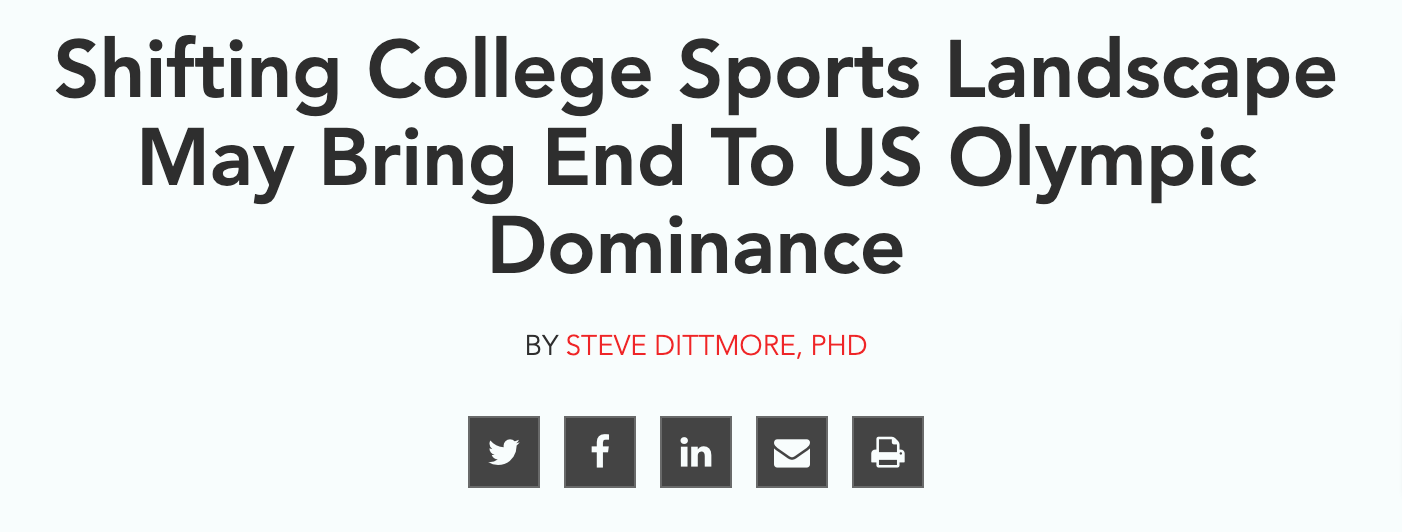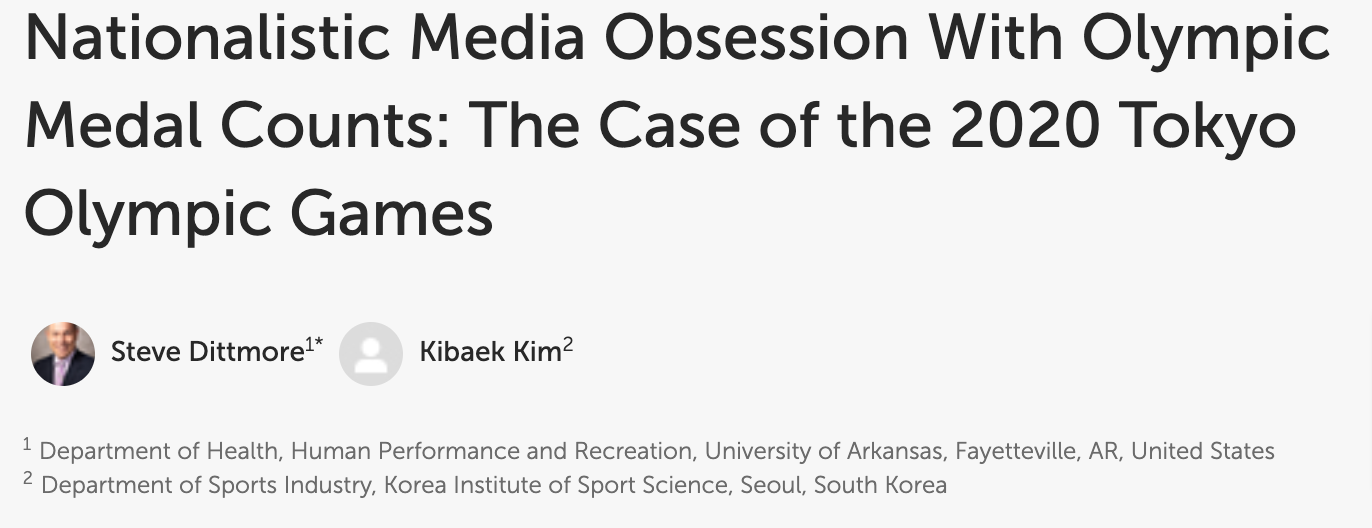Olympic and College Sport Policy
Following a decade of working in Olympic and intercollegiate sport, including for two Olympic Games organizing committees, I decided to pursue a PhD in order to become a faculty member. It was, therefore, appropriate for me to blend those experiences into a dissertation. Using organizational justice literature on college athletics pioneered by my advisors, I adapted their line of inquiry to the U.S. Olympic movement. The result was the 2009 Journal of Sport Management publication, "Examining fairness perceptions of financial resource allocation in U.S. Olympic sport."
Since then, I have published several articles on the interaction between the USOPC and college athletics, particularly the implications of the education-based system of sport delivery in the United States. Unlike many other countries, the USA relies on a system of athletes playing Olympic sport in high schools and colleges. As such, as many universities cut back on the number of these non-revenue sports they sponsor, an externality of these decisions is the impact they have on international competition.
Since then, I have published several articles on the interaction between the USOPC and college athletics, particularly the implications of the education-based system of sport delivery in the United States. Unlike many other countries, the USA relies on a system of athletes playing Olympic sport in high schools and colleges. As such, as many universities cut back on the number of these non-revenue sports they sponsor, an externality of these decisions is the impact they have on international competition.



